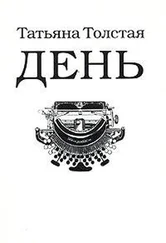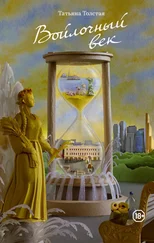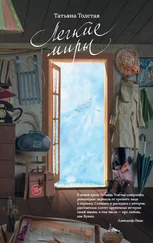A few months ago he hosted a small get-together for some colleagues from our department: standing buffet, wine in plastic cups, smoking outside only, in the chill, autumnal air of the backyard—“Please close the storm door, not just the screen door: it reeks of smoke in here, yuck, yuck.” Crudités and spreads—“Dip the celery sticks in the hummus and the carrot sticks in the guacamole.”
With triumphant false modesty, Eric’s wife brought out a dish filled with hot buckwheat; the guests—the bravest, anyway—reached for it with plastic forks. Exclamations of multiculturalism and feigned delight. I tried some, too: they forgot to add salt to the kasha. It was inedible.
It was necessary to explain some things that may have escaped Eric and his colleagues, to lower the flame of exoticism down to a common, grocery store fact: this rare pinkish grain can be obtained under the name Wolff’s Kasha at any American supermarket. Yes, it’ll be expensive, and yes, outrageously so. Cheaper buckwheat, of the dreaded Polish variety, can be obtained in any Russian store in Brighton Beach or beyond. The quality will be awful, and so will the taste; it is under-roasted and upon boiling it swells to mush, but at least there is no need to travel to Vietnam. We Russians can eat kasha for breakfast, lunch, and dinner. Doctors prescribe it for diabetes. There is even an old Russian saying—“Buckwheat compliments itself”—meaning it’s so naturally delicious, there is no need to compliment the cook. You could fry it in a pan; you could slow-cook it in a cast-iron pot inside a Russian masonry stove if you had cast-iron pots and Russian masonry stoves, but you don’t; and you can never add too much butter to kasha. Oh, and if you add mushrooms!… and onions! Actually, why don’t I just show you!
I took the kasha from his wife and quickly refried it properly. Her heart filled with hate. And Eric’s with love. Or something like it. It’s hard to tell. When I see Eric, my heart swells. But what swells in him—I just don’t know.
§
Our affair proceeds with some complications, and, frankly, it’d be better if it weren’t happening at all. The clock points to December, and when it’s over, I’ll be leaving here never to come back. I’ll return to Russia; I’ll visit New York occasionally—that bolted, splendid, acicular, cast-iron, windy anthill that never sleeps; I’ll visit my friends in San Francisco, where it’s always spring and where, as the song goes, “a lilac coatroom man will hand you your manteau”—maybe he’ll hand me my coat, too, a belted cashmere one with a shawl collar, if I buy it in time. I’ll rent one of those really wide jeeps; buy myself some embossed-leather cowgirl boots with pointy toes, a cowboy hat and aviator sunglasses; stock up on water and beef jerky; and, cigarette a-danglin’, I’ll zoom through California, Nevada, and Arizona, across rocky deserts—brown and pink, lavender and purple—their mirages trembling over salty and waterless lakes. Where to? No idea. Why? No reason, just because: there is nothing better out there than the desert. The fresh, dry air through an open window, the smell of rocks, the smell of emptiness, loneliness, freedom—the right kind of smell.
But to this tiny, ornate, gingerbread town covered with the purest of snow, I will never come back. So what do I need this love for? As I keep telling myself: I’d be better off without it. Or maybe it just seems that way.
—
In the Yi language, “snow” is vo.
—
Every day I keep repeating to myself that Eric is limited, poorly educated, and generally not that smart. Or if he is smart, it’s not readily apparent. And not even that attractive—teeth, shmeeth. And we have nothing to talk about. I mean, we can’t keep talking about the Pu Pèo, can we? But every time we meet, be it in that smoky student cafeteria, or in the chichi little bagel shop (and there, progressive bagels “with everything” for intellectuals and also cranberry scones, rare coffee varietals, and a free copy of the latest New Yorker for quick browsing—this could be Paris!), or at the post office—accidentally on purpose—or quite unexpectedly in the boundless campus parking lot, every time he’s back to chewing my ear off about the Pu Pèo, and every time, to my dismay, I find myself listening to his mumbling as if it’s a chorus of angels. With every passing day I get more and more stuck in this love like it’s glue.
—
In the Yi language buckwheat is nge. At least that’s how I hear it. Nge.
—
I’m a steadfast tin soldier: nothing gets to me—even love can’t get to me—but, dear God, when I see that lanky four-eyes; when I watch him climb out of his car like a daddy longlegs; when I suddenly recognize him, absurd in his long coat, as he materializes out of the whirling snowflakes, turning his face from the wind, covering his eyes against the blizzard, all my inner towers, bastions, and barricades melt, crumble, and disintegrate in slow motion, as in a lousy, drowsy cartoon. Tell me, dear God: Why him, specifically? Aren’t there other absurd and inarticulate bespectacled gents? Why him? I don’t understand You, Lord. Please reveal Your plans to me!
—
Whenever confusion stirs within my soul, instead of going to the student cafeteria to dine on turkey corpses, I drive to that progressive bagel shop, buy myself the biggest cup of real coffee they sell and a cranberry scone, and sit by the window with the local paper. Turn it inside out and then fold it over twice to read about the latest goings-on. Pretty standard stuff: Two sedans collided on the highway with a van that was transporting dry ice—four casualties. A house was robbed: the owner stepped out for a bit and didn’t lock the front door, pinning his hopes on the storm door—hopes dashed, computer stolen. Two people fell into an ice hole on the lake and couldn’t get out. Once again campus police have detained J. Alvarez, a homeless man who for the sixth time had ignored warnings about loitering around the university. He was taken to the local precinct, where the situation was explained to him yet again, to no avail. Alvarez likes the campus; it’s spacious and pretty, and with its tree-lined paths it’s equally beautiful in the winter and summer. The female students are pretty, too, and so Alvarez comes to check out the ladies, who, in turn, complain to the administration.
—
“What do you want from me, Eric?”
“Tell me something surprising about your alphabet. The Russian alphabet.”
“In Russian we have the letter Ъ. The ‘hard sign.’”
“What does it sound like?”
“Like nothing.”
“At all?”
“At all.”
“Then why do you have it?”
“It’s a certain type of silence, Eric. Our alphabet has elements of silence.”
Of course I could easily explain to him the reason for using the letter Ъ, its derivation, as well as its modern and historical contexts—but why? He’s not planning to learn Russian, and he really has no need to know. It’s a waste of time. And besides, it’s already December, and I’ll soon be leaving, never to come back. I look out at the bluish evening, the town all lit up and covered with beads and tinsel—it’s close to Christmas, and here the shops have started selling gifts, sparkles, candles, and flickering well in advance. Right around Thanksgiving they start. This is a northern town, as far north as they get. Farther than that, where the earth curves, there are only simple little settlements with savage Poles and detached-from-reality Canadian-Ukrainians, cliffs and snow, giant stadium-sized supermarkets selling only canned goods to the local population that consumes no fresh greens for historical reasons, and then again cliffs and snow, snow and cliffs.
Читать дальше






